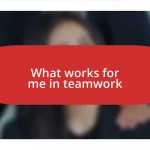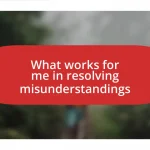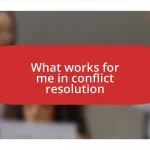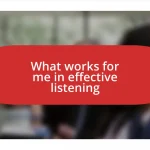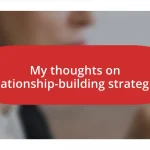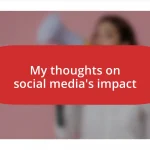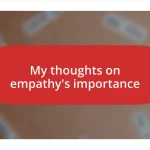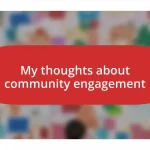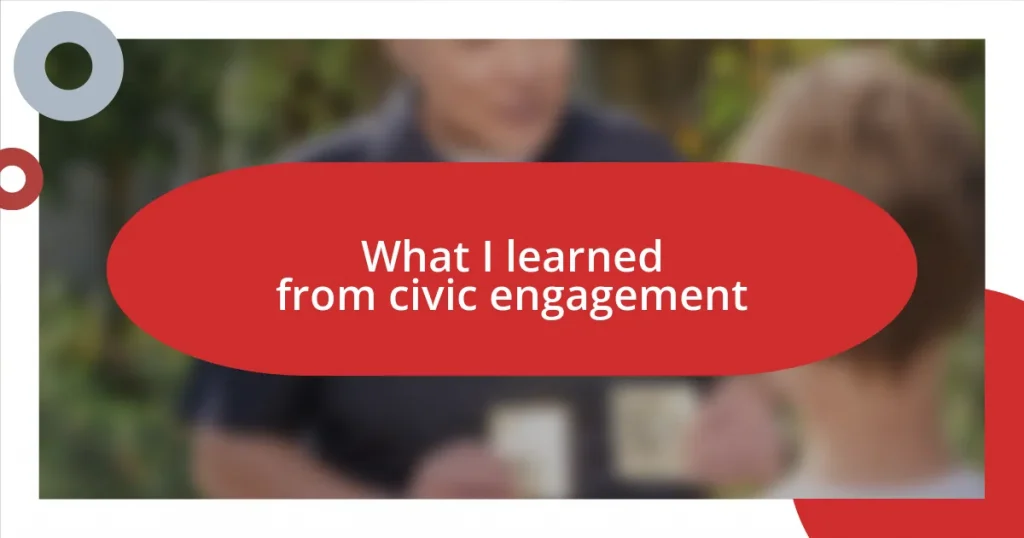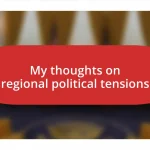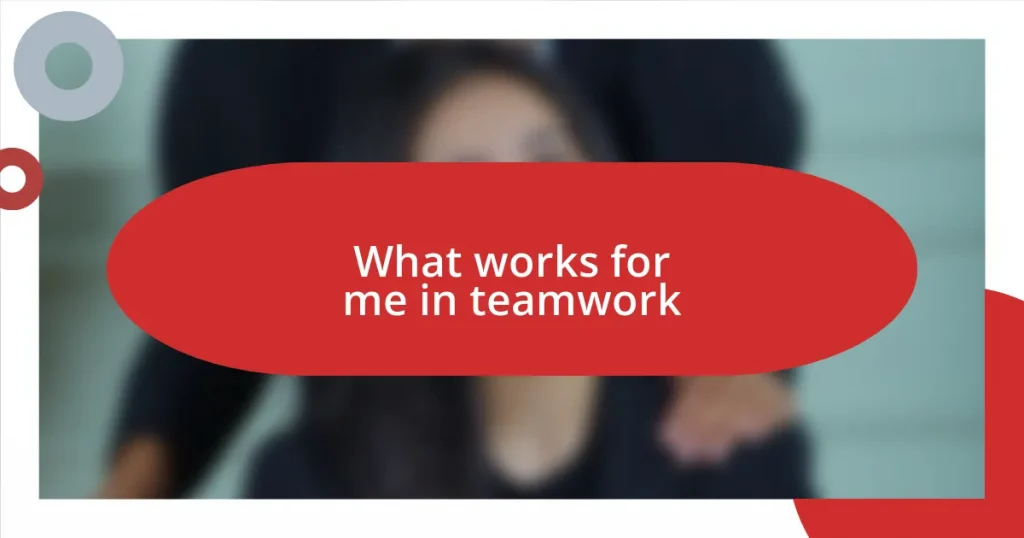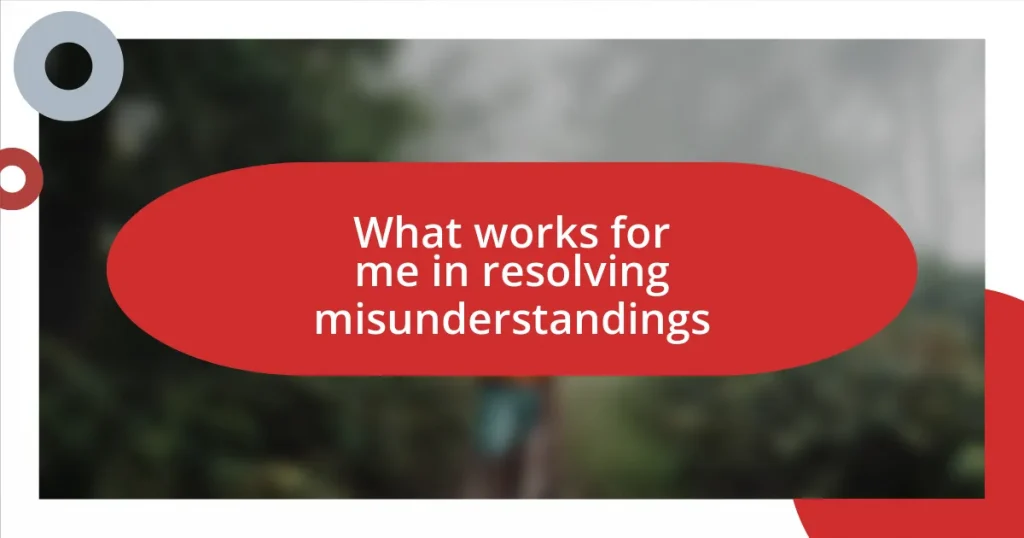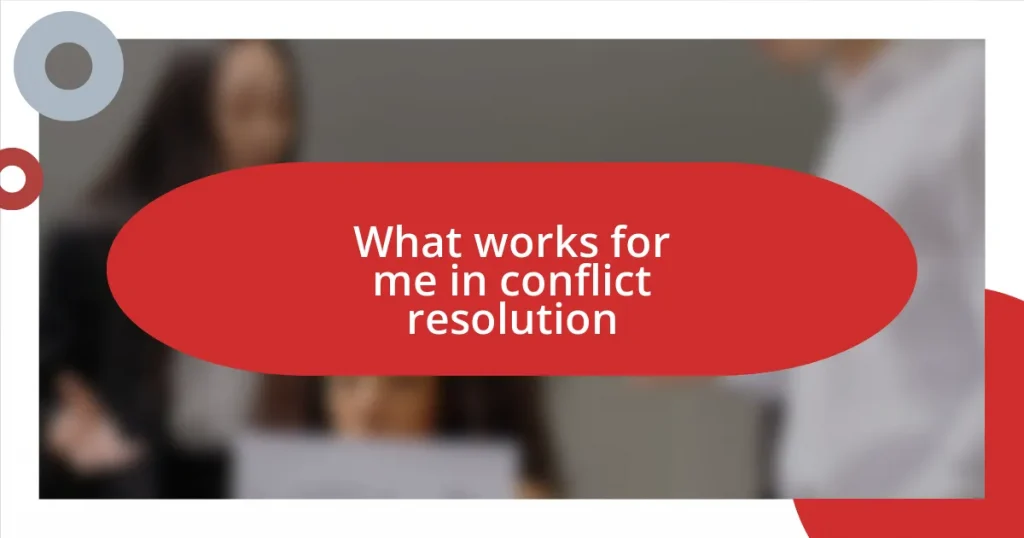Key takeaways:
- Civic engagement fosters a sense of community, connecting individuals from diverse backgrounds through shared goals.
- Involvement in community initiatives promotes personal growth, skills development, and a deeper understanding of societal issues.
- Active participation in civic activities allows individuals to create tangible change and enhances their sense of civic responsibility.
- Overcoming barriers to engagement, such as time management and fear of differing opinions, can lead to rich discussions and personal empowerment.
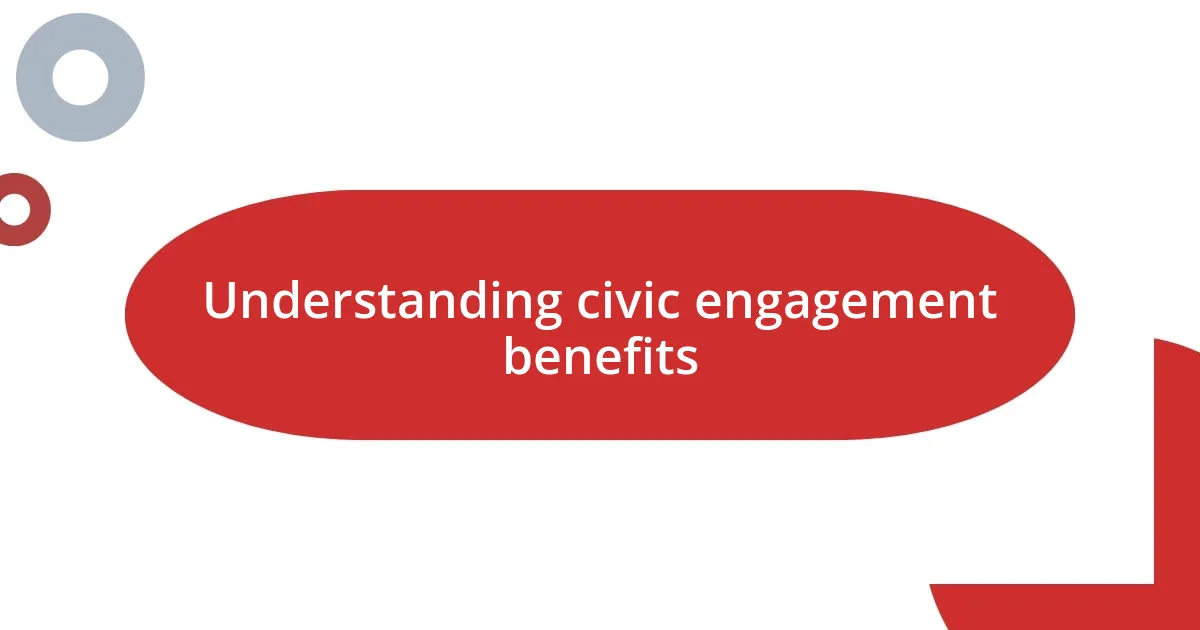
Understanding civic engagement benefits
One of the most profound benefits of civic engagement is the sense of community it fosters. I remember participating in a local clean-up day, and it was incredible to see neighbors from different backgrounds come together for a common cause. Have you ever felt that intoxicating rush of camaraderie when working alongside others towards a shared goal? It’s as if the barriers that usually separate us begin to dissolve.
Engaging with civic activities also opens doors to a deeper understanding of societal issues. I once attended a town hall meeting where residents voiced their concerns about public transportation. Listening to their stories made me realize how interconnected our lives are and the varying perspectives we all hold. Don’t you find it eye-opening to witness firsthand how complex our communities can be, shaping our views on everything from policy to priorities?
Moreover, civic engagement empowers individuals to create change. I vividly recall the moment I successfully advocated for a new community garden in our neighborhood. The feeling of having made a tangible impact ignited a passion in me that I didn’t know existed. When was the last time you felt that surge of empowerment? It’s a reminder that when we participate, our voices can lead to real transformation.
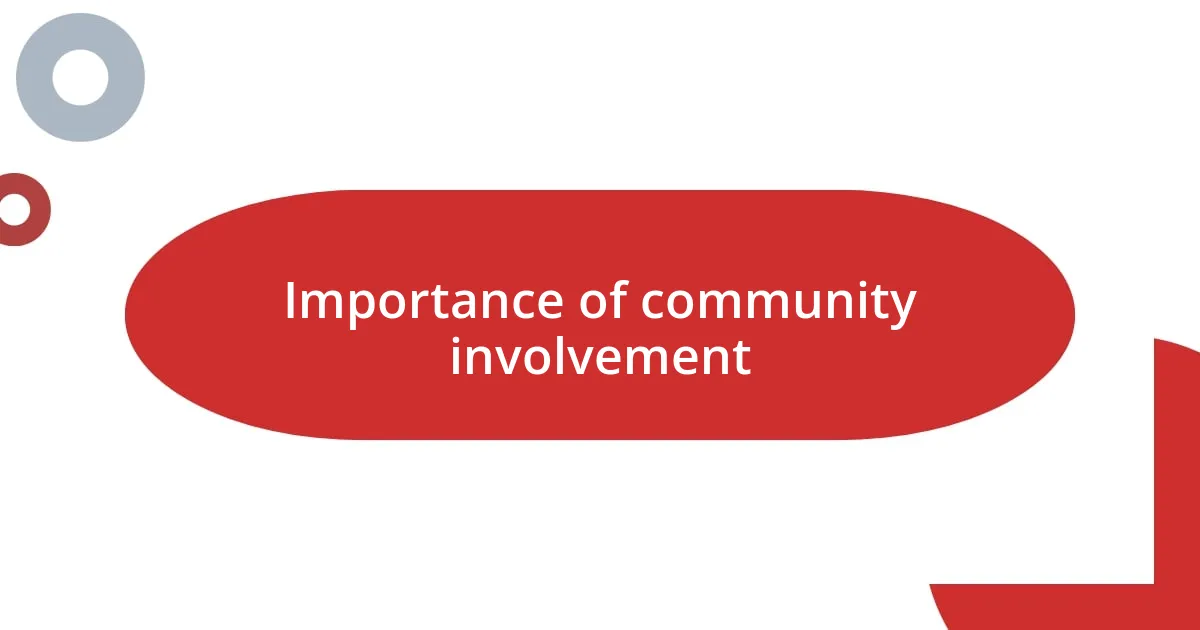
Importance of community involvement
Community involvement is more than just a feel-good experience; it’s crucial for building strong, resilient neighborhoods. I remember hosting a block party, where not only did friendships blossom, but we also identified shared concerns about safety and local resources. Isn’t it remarkable how just spending time together can ignite important conversations and inspire collective action?
Additionally, being engaged in community initiatives boosts personal growth and skills. When I volunteered at a local food bank, I learned about logistics, teamwork, and communication in ways I never expected. It dawned on me that every small contribution adds to a larger narrative of change. Have you ever noticed how stepping out of your comfort zone opens up new avenues for learning?
Finally, community involvement often leads to greater civic responsibility. I participated in a youth mentorship program that not only impacted the children involved but also deepened my sense of accountability toward societal wellbeing. Seeing the brighter future we can create together made me reflect on how each of us plays a vital role. Don’t you think that realizing we are all part of a bigger picture can motivate us to take action?
| Benefits of Community Involvement | Examples |
|---|---|
| Strengthens Neighborhood Bonds | Block parties and local clean-ups foster connections |
| Promotes Personal Growth | Volunteering at food banks enhances skills |
| Encourages Civic Responsibility | Mentoring youth shapes future leaders |
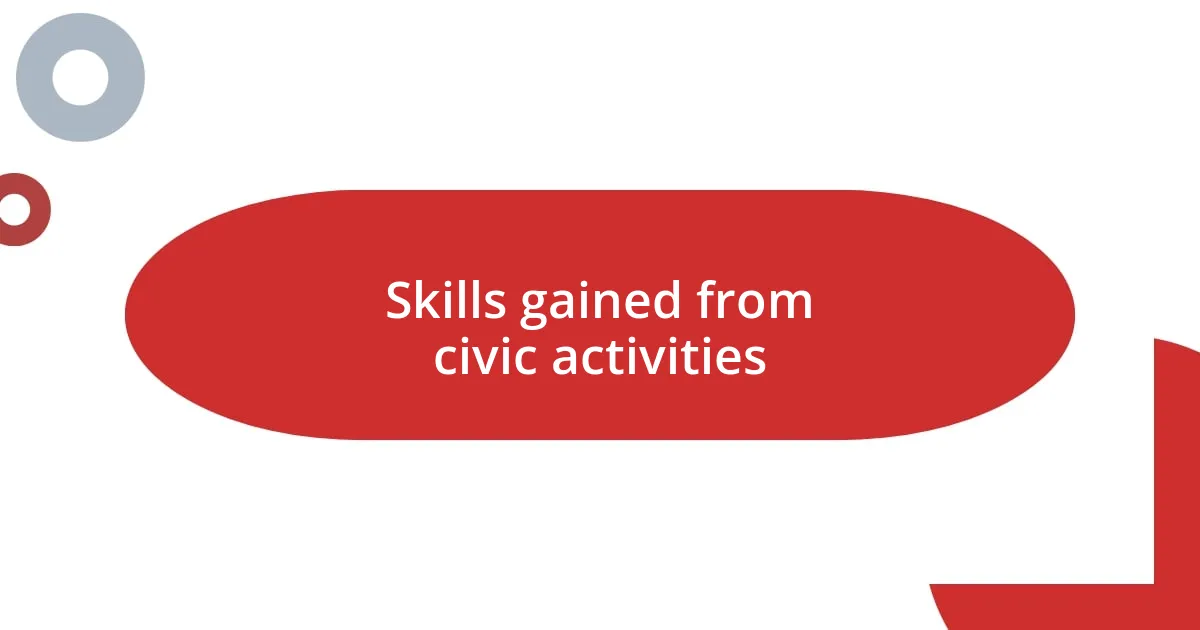
Skills gained from civic activities
While engaging in civic activities, I found that I developed a diverse toolbox of skills I hadn’t anticipated. For example, during a community art project, I honed my ability to collaborate and delegate tasks effectively. Seeing the canvas transform under our combined efforts was exhilarating! This kind of teamwork not only builds friendships but also equips participants with conflict resolution and leadership skills that are valuable in any setting.
Here are some specific skills I gained from my civic engagements:
- Communication: Articulating ideas and listening to others’ perspectives became second nature while planning events.
- Organizational Skills: Coordinating volunteer schedules and resources taught me how to manage time and prioritize tasks efficiently.
- Cultural Awareness: Collaborating with people from different backgrounds opened my mind to varying cultural practices and ways of thinking, enriching my worldview.
One of my most heartfelt experiences came from volunteering at a local shelter. I learned the importance of empathy and emotional intelligence when interacting with the families there. Each conversation left me with a deeper understanding of their unique challenges, and it made me appreciate the strength of the human spirit. Isn’t it profound how such involvement not only transforms the lives of others but also reshapes our own perspectives and priorities?
Skills gained through civic engagement truly shape who we are:
- Empathy: Understanding the struggles and stories of diverse individuals fosters deeper connections.
- Adaptability: Responding to unexpected challenges in community initiatives boosts resilience.
- Public Speaking: Presenting at community meetings instills confidence and clarity in expressing ideas.
Civic activities pushed me out of my comfort zone, revealing strengths I didn’t know I had. For instance, I once had to lead a fundraising campaign, and through that experience, I developed persuasive communication techniques and learned how vital storytelling can be in rallying support. It’s incredible to realize that the skills we nurture while giving back can resonate far beyond our immediate environment.
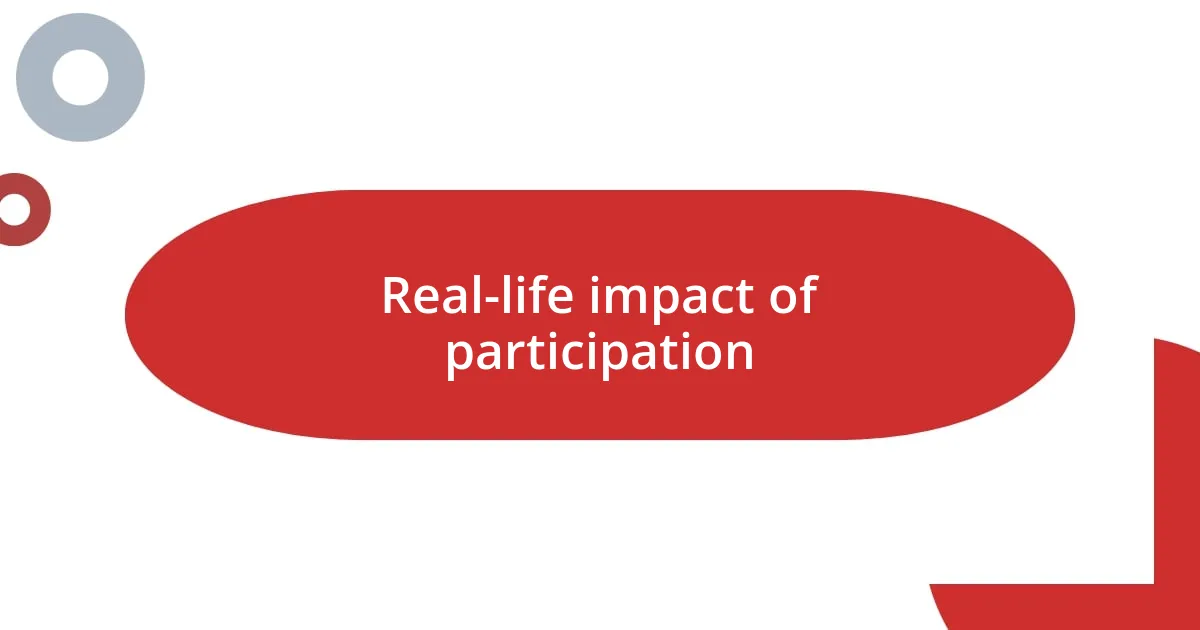
Real-life impact of participation
Participating in community activities truly demonstrates the tangible impact one can have. When I joined a local park renovation project, I was amazed to witness a neglected space transform into a vibrant gathering hub. It wasn’t just about landscaping; it was about creating a safe, welcoming environment that fostered connection among neighbors. Have you ever seen a community come together and realize its potential? It’s inspiring, isn’t it?
The ripple effects of civic participation are profound. I remember working on an initiative aimed at improving local literacy rates. As part of our team, I had the privilege of mentoring a young student who struggled with reading. Watching him grow more confident and skilled brought me so much joy, reinforcing my belief that each of us contributes to a larger narrative of change. Isn’t it uplifting to know that our actions, no matter how small, can shape the futures of those around us?
Moreover, engaging with diverse groups broadens our understanding and fosters empathy. Once, during a community dialogue event, I listened to residents share their experiences with local policies. Relating their stories to my own challenges made me realize just how interconnected our lives are. It’s moments like these that show me how our participation can illuminate the struggles and triumphs of our communities, deepening our commitment to one another. Have you ever felt that surge of connection when sharing stories with others? It’s a powerful reminder of the human experience we all share.
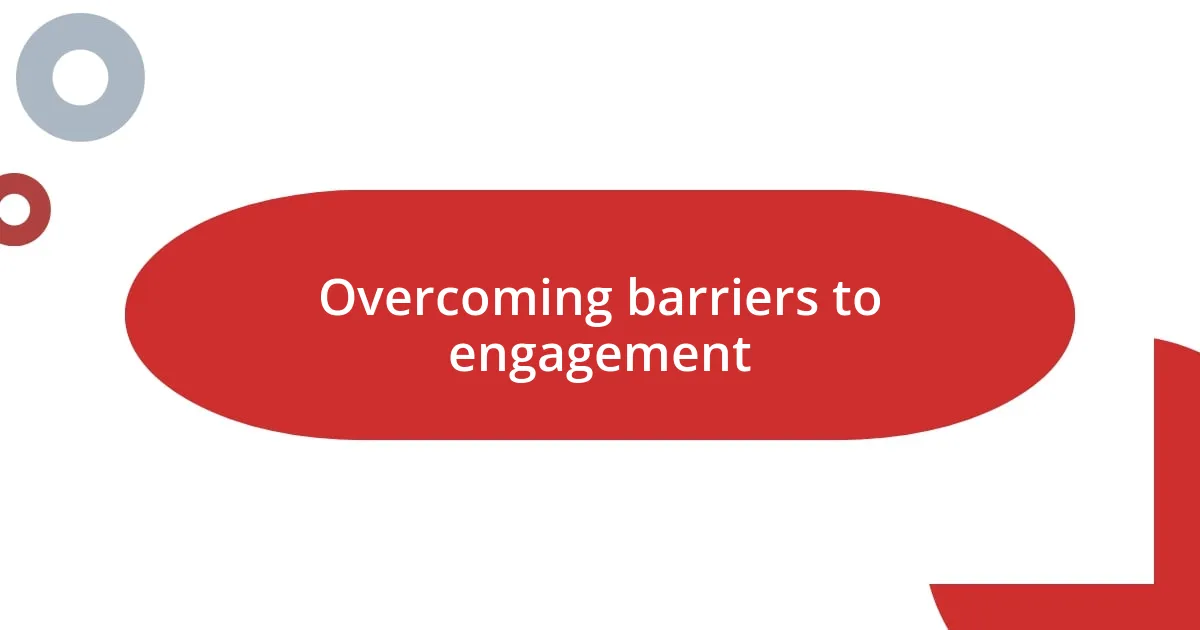
Overcoming barriers to engagement
Civic engagement often feels like an uphill battle due to various barriers we face, but breaking through those obstacles can be incredibly rewarding. I remember struggling with my own apprehensions when I first joined a community board. The fear of not being knowledgeable enough held me back. However, by attending informative sessions and seeking mentorship from more experienced members, I gradually found my voice. Isn’t it interesting how, once I took that first step, everything else began to feel more manageable?
Another common barrier is the time commitment associated with civic activities. I often felt overwhelmed balancing work, family, and community involvement. What helped me was establishing a schedule that prioritized my civic engagements, almost like I was blocking out time for self-care. Each time I participated, even in small ways, I discovered that the experience energized me rather than drained me. How can anyone truly contribute meaningfully if they don’t make space for it in their lives?
Lastly, engaging with differing viewpoints can be intimidating. During a community forum about local policies, I hesitated to share my opinion, fearing backlash. But when I finally opened up, I found that my perspective was welcomed and even sparked an enlightening discussion. It was empowering! It reminded me that every voice matters and that overcoming our fears can lead to richer conversations. Isn’t it refreshing to embrace vulnerability in these settings? I’m convinced that the more we expose ourselves to different opinions, the more we grow—both as individuals and as a community.
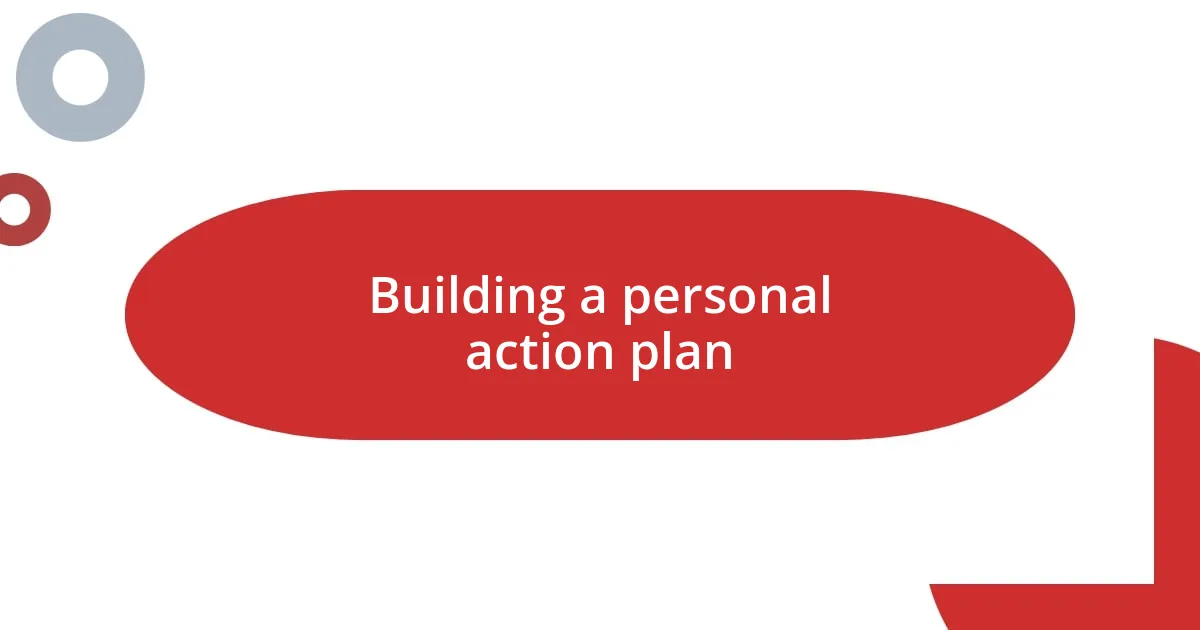
Building a personal action plan
Creating a personal action plan for civic engagement is a powerful way to channel your enthusiasm and commitment. I often jot down my goals, breaking them into manageable steps. For instance, when I aimed to improve my neighborhood’s safety, I started by attending local meetings and voicing my ideas, which made me feel more connected. Have you ever thought about how jotting down your intentions could clarify your path forward?
Along the way, I’ve learned the importance of flexibility in my action plan. I once had everything laid out perfectly for a community clean-up event. However, when the weather turned sour, I had to pivot and organize a virtual gathering instead. This experience taught me that adapting to unforeseen circumstances can still yield meaningful connections, even if it wasn’t part of the original plan. Does it ever surprise you how improvisation can lead to unexpected growth?
Additionally, I find it essential to regularly reflect on my experiences to assess my progress. After participating in various projects, I take the time to evaluate what worked and what didn’t. This reflection not only reinforces my commitment but also helps me discover new opportunities for engagement. I sometimes ask myself: how can I leverage what I’ve learned to inspire others? It’s in that inquiry that I often discover fresh avenues for participation.
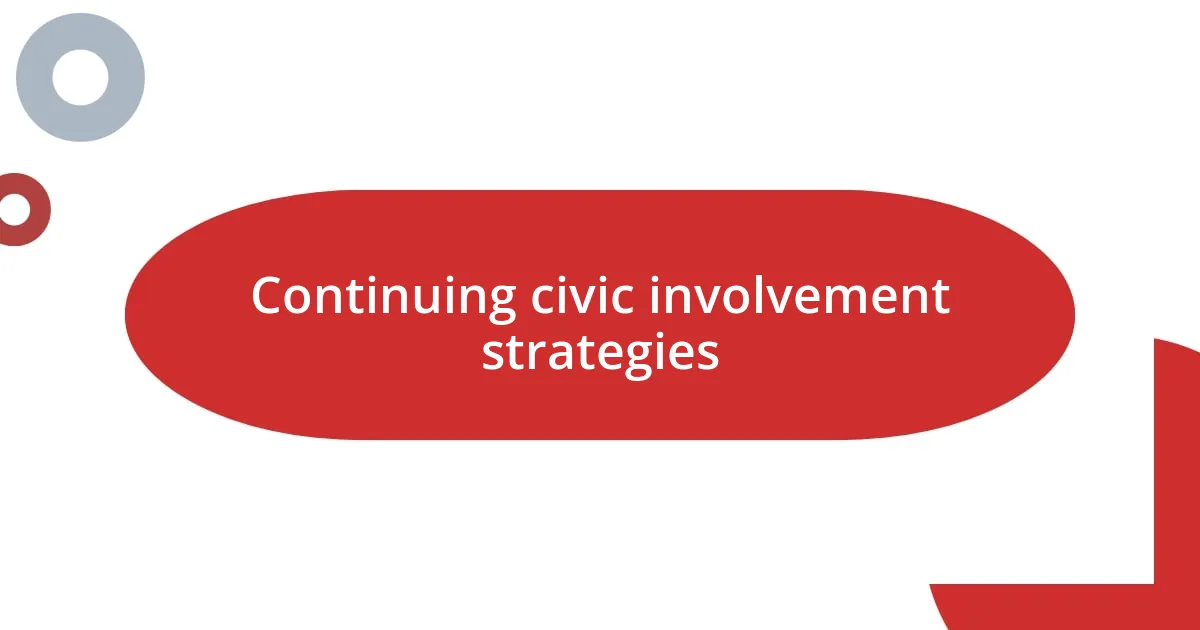
Continuing civic involvement strategies
Continuing civic involvement requires a proactive mindset. I remember my enthusiasm waning after a few months of attending meetings without seeing tangible results. To reignite that spark, I began to seek out precise roles within my community projects. Taking on responsibilities, like leading a workshop or organizing an event, not only gave me purpose, but also made the work feel more impactful. Have you ever noticed how diving deeper can transform your experience from passive to active?
Another strategy that’s helped me is creating a community network. I found that connecting with others who share my interests in civic engagement opened doors to collaboration. By organizing small group discussions, we not only exchanged ideas but also made plans for collective action. There’s something truly fulfilling about knowing you’re not alone in your efforts. Have you tried reaching out to others in your community? You might be surprised at how many people share your passion.
Finally, I advocate for lifelong learning in civic engagement. I make it a point to stay informed about current issues and trends by attending workshops or reading relevant literature. For example, after participating in a local election discussion, I realized I wanted to understand campaign strategies better. So, I enrolled in an online course focused on civic leadership. This constant quest for knowledge energizes my involvement and influences the way I contribute meaningfully. Isn’t it amazing how education can enhance our impact in the community?
